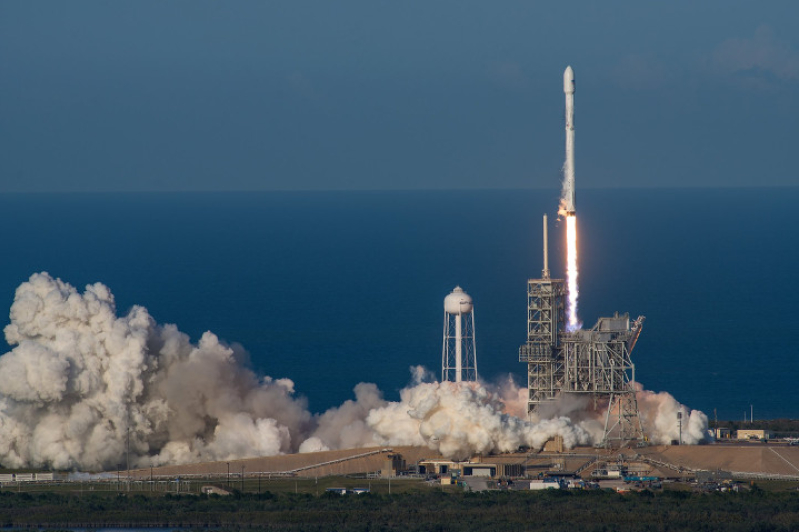
Space, the final frontier. That and living 20,000 leagues under the sea. Personally, I would prefer to live under all of that pressure with the threat of drowning, than to be in a weightless environment that sees the calcium density of my bones slowly but surely sap away with time, turning me into a brittle skeleton by the time I return to earth. Well, traveling to space is no mean feat, and it is certainly an expensive affair. There are many calculations to take into consideration, and so far, rockets are used only once -- and then discarded away. Not so with Elon Musk's SpaceX program. It seems that SpaceX's reusable rockets' recent testing saw the successful launch and landing of its recycled Falcon 9 rocket as envisioned, opening up the satellite business where smaller companies are concerned. This marks the first reflight of an orbital class rocket in the world.
Falcon 9 first stage has landed on Of Course I Still Love You — world’s first reflight of an orbital class rocket.
— SpaceX (@SpaceX) March 30, 2017
With the Falcon 9’s success in its latest mission, it could literally change the way the space industry works. After all, to date most of the rockets that end up in orbit tends to be destroyed, or remains as debris out there. In other words, each new launch would most probably see the creation and development of a brand new rocket, and this is very costly even if your last name is Gates. Well, SpaceX has for more than half a decade now developing reusable rockets which could end up with millions of dollars in savings, and has successfully landed its Falcon 9 rockets on land and at sea -- with the future project involving sending these rockets back to space.
The success of the Falcon 9 project could potentially reduce launch costs by up to a whopping 30%, and in time, this might see several key segments of the satellite market grow as well. At time of publishing, SpaceX's base launch price stands at $62 million for a Falcon 9 rocket, which is already cheaper compared to its competitors. However, smaller companies still find this to be out of reach for them, especially when it involves sending satellites into the vacuum that we call space.
To reduce the entry price point to $40 million would mean the door is flung wide open to cater to a wider range of satellites at various orbital levels, all the while serving different needs. It would also not be surprising to see some of SpaceX’s rivals adopt its practices as well to make the industry more competitive. SpaceX is looking into rolling out its very own constellation of approximately 4,200 LEO satellites, with South Korean conglomerate Samsung also having their own plan to send up around 4,600 LEO satellites along the way.
At the very least, at least last year's Falcon 9 rocket explosion did not end up as a stumbling block or a deterrent for Elon Musk to forge forward with the idea of reusable rockets. Now that another huge stride has been made in this aspect, we cannot help but wonder how bright the future is.






